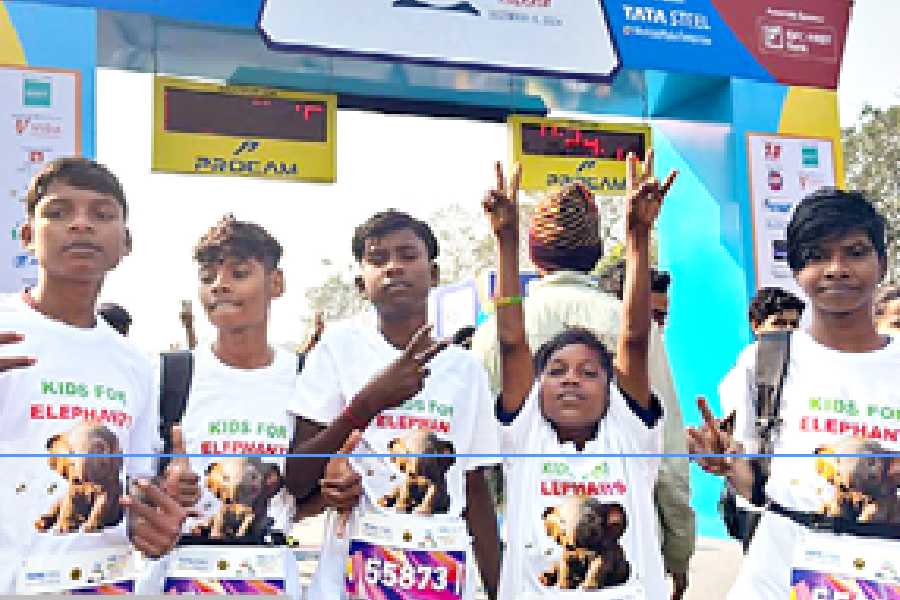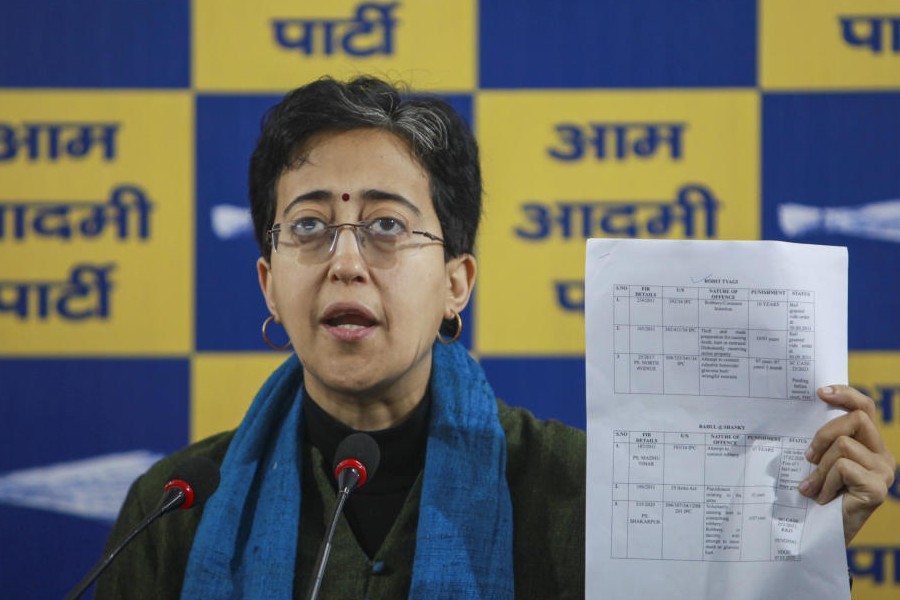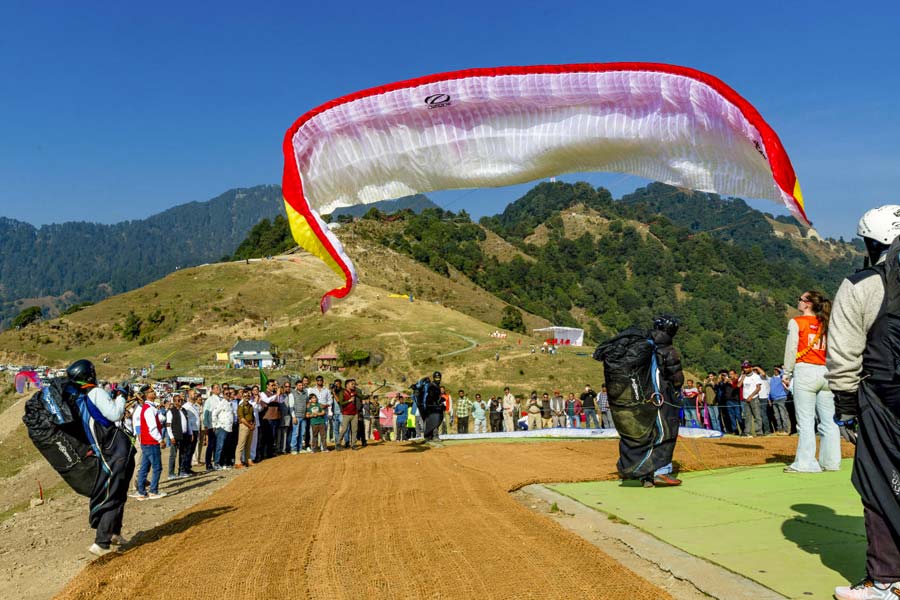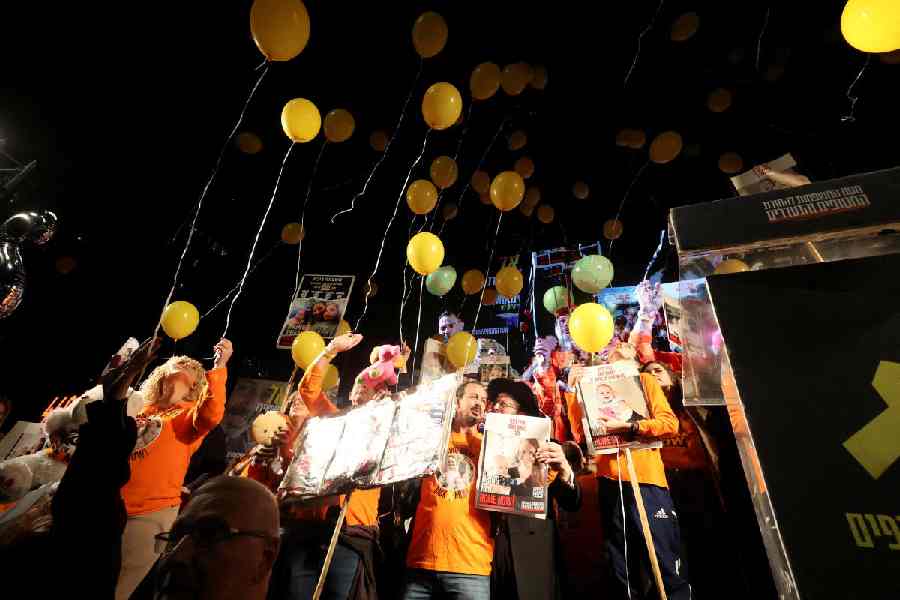Five kids from Jhargram ran in eastern India’s biggest road race on Sunday morning to raise awareness on and funds for the conservation of elephants.
Their home is infamous for human-elephant conflict, triggering deaths on both sides.
Wearing identical t-shirts that read “KIDS FOR ELEPHANTS”, the boys, aged 11 to 14, posed for the shutterbugs as they took part in the 4.5km Ananda Run in the Tata Steel World 25K, partnered by The Telegraph.
The camera has changed their lives. Raja, Ajay, Lalu, Tarash and Surajit are the protagonists of a film about illegal and indiscriminate wildlife hunting in south Bengal. They come from hunting families.
Between August and September 2022, the boys were given basic (second-hand, point-and-shoot) cameras to photograph the very same wildlife they habitually hunted in their backyards with catapults.
The documentary, Catapults to Cameras, tells the story of their transformation. The kids not only discarded their catapults but also began to learn to recognise the beauty of nature around them, through the lens of a camera. Now, the boys teach other children how to take pictures.
At the end of the workshop, they put up a pop-up exhibition in their village of the wildlife photos they had taken. Most of their subjects — birds, monitor lizards, wild cats and the like found in the forests of south Bengal — on display were widely killed during festivals. Yet, the whole village attended the exhibition enthusiastically.
Some of the pictures were of elephants as well.
“The run was very exciting. I had several people asking about our dress. I told them that elephants often raid our villages. That we are trying to dissuade people from using violence in driving the elephants away,” said Surajit, the eldest of the lot.
Jhargram is one of the human-elephant conflict zones in south Bengal. In the middle of August, an elephant that strayed into Jhargram town was killed after being speared by a burning iron rod, apparently by a member of a hula party — squads of residents deployed to steer jumbos away from human settlements.
“These children’s attitude towards wildlife has taken a 180-degree turn. They are very much aware of the threat to crops — that their elders toil hard to grow — posed by elephants. They also know that the conflict cannot be solved overnight. Elephants cannot be allowed to ravage the farmlands. They have to be driven away. But how to do that? That comes from education, understanding and empathy, which have been instilled in these children,” said Ashwika Kapur, award-winning nature filmmaker and a science communicator who traces her roots to Calcutta.
Kapur and members of the Human and Environment Alliance League (HEAL), a Calcutta NGO, were with the children on Red Road on Sunday. The NGO is at the centre of a crusade against hunting festivals in south Bengal.
Kapur’s documentary tracks the conservation initiative by HEAL.
The children came to Calcutta by train, accompanied by volunteers of the NGO, on Saturday and were put up at a Ballygunge hotel. They were given new running shoes and had biryani at the EM Bypass outlet of a popular Mughlai restaurant chain.
On Sunday, after the race, they visited the Alipore zoo and took a train home onMonday.
The TSW 25K is making a difference to the lives of many.
The ninth edition has raised close to ₹25 lakh for charity. Fundraising for this edition will continue till January 3, organisers said.
In total, 30 NGOs, individual fundraisers, eight corporate bodies and thousands of individual donors have come together to raise money. Last year, the total amount raised for charity was around₹19 lakh.
The platform has gathered support for a wide range ofsocial causes such as education, healthcare, environment, livelihood, elderly care,gender rights and animal welfare.











